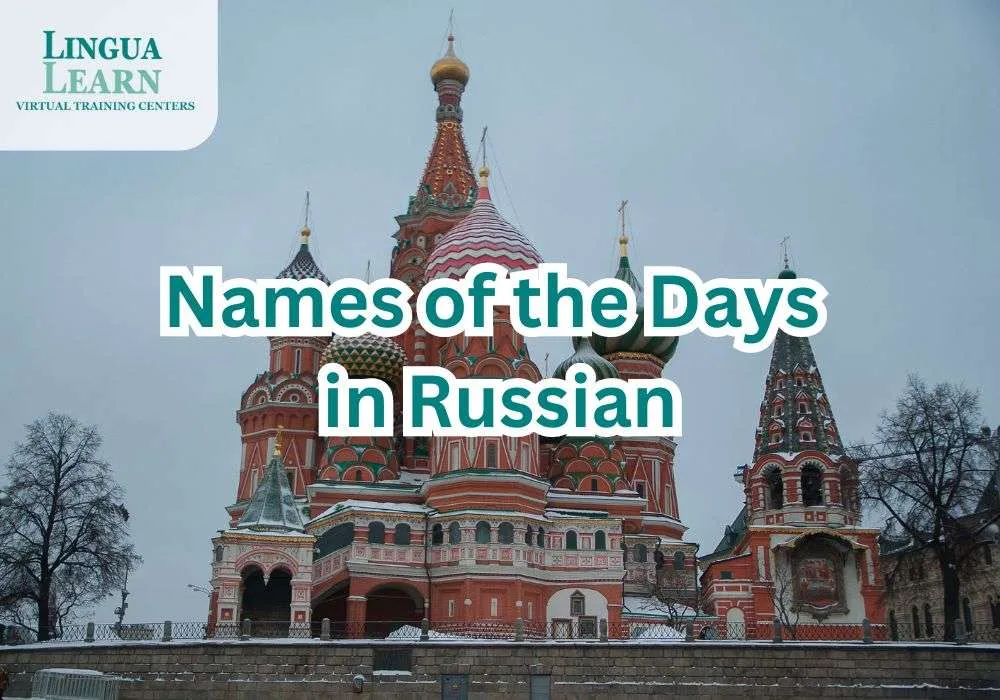
Understanding the names of the days in Russian is a fundamental step for anyone learning the language. Whether you’re planning a trip to Russia, connecting with Russian speakers, or simply expanding your linguistic skills, knowing the days of the week will enhance your ability to communicate effectively. The Russian Week: An Overview In Russian, the […]
Understanding the names of the days in Russian is a fundamental step for anyone learning the language. Whether you’re planning a trip to Russia, connecting with Russian speakers, or simply expanding your linguistic skills, knowing the days of the week will enhance your ability to communicate effectively.
In Russian, the days of the week are deeply rooted in history and culture. The names of the days in Russian not only tell us about time but also reflect the rhythm of life in Russian-speaking communities. Here’s a complete guide to help you master these essential words.
The first day of the week, Понедельник (Ponedel’nik), marks the beginning of the workweek. Derived from the word “неделя” (nedelya), which means “week,” it literally translates to “after the week.”
Вторник (Vtornik) is the second day, with “второй” (vtoroy) meaning “second.” This day represents progress and the continuation of weekly tasks.
The middle of the week, Среда (Sreda), signifies the mid-point, as “среда” means “middle” or “environment.” It’s a pivotal day that balances the start and end of the week.
Четверг (Chetverg) takes its name from “четыре” (chetyre), meaning “four.” As the fourth day, it’s a reminder that the weekend is near.

The day most eagerly awaited, Пятница (Pyatnitsa), derives from “пять” (pyat’), meaning “five.” It’s synonymous with the end of the workweek and the beginning of relaxation.
Суббота (Subbota) has religious roots, coming from the Hebrew word “Sabbath.” This day is traditionally associated with rest and reflection.
Воскресенье (Voskresen’ye) means “resurrection” and is tied to the Christian belief in the resurrection of Jesus Christ. It’s both a spiritual and restful day, rounding off the week.
Learning the names of the days in Russian not only helps you schedule your week but also immerses you in the culture and history of the language. Whether you’re arranging meetings, planning trips, or simply keeping track of time, these words are essential.
Ready to dive deeper into the Russian language? Join us at Lingua Learn to explore more about Russian and other languages. Learning with us is a step toward achieving fluency and cultural understanding.
If you’re seeking job opportunities where language skills are valued, check out JobStreet for the latest openings that match your expertise.